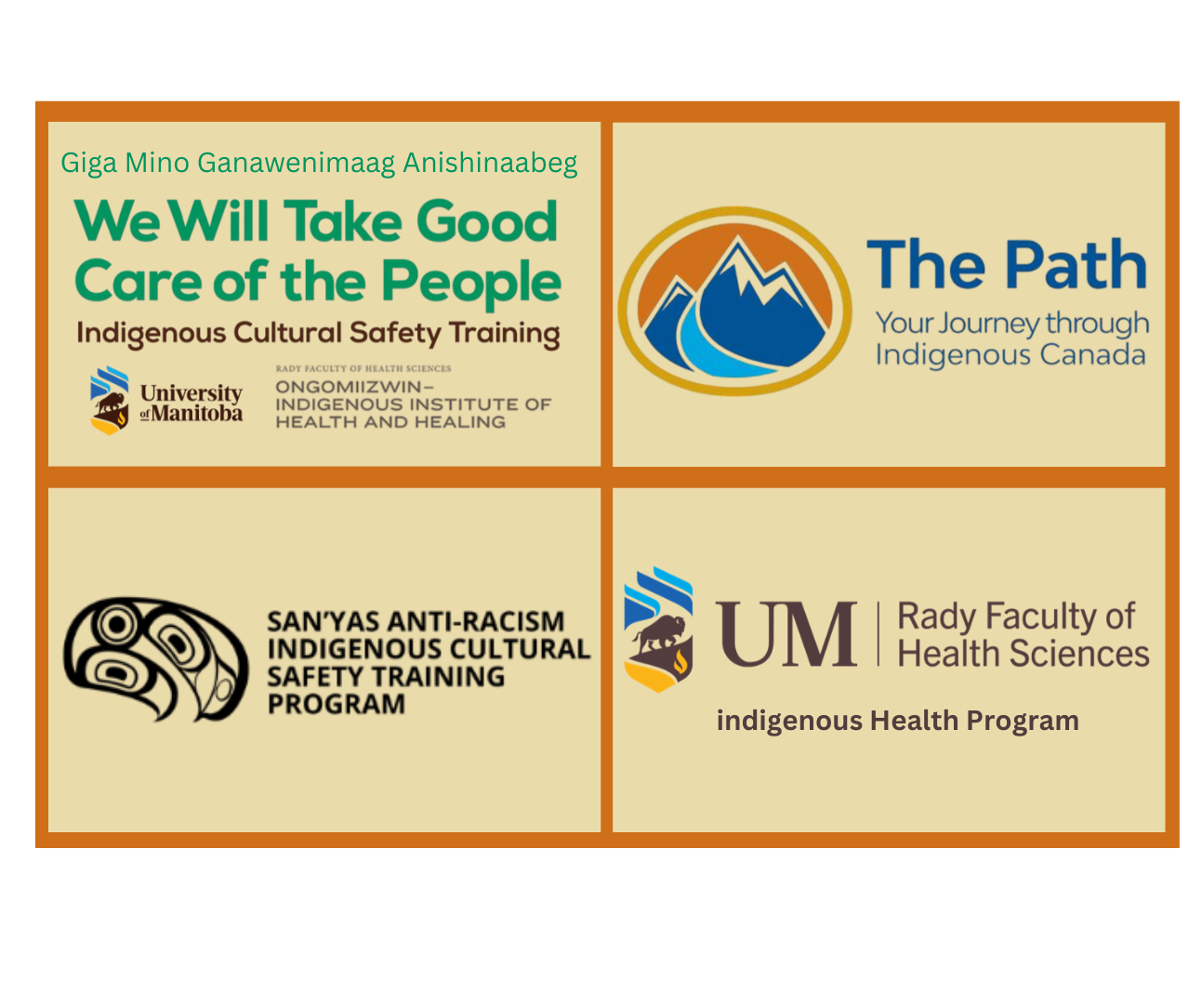Cultural Safety and Anti-Indigenous Racism Training
Download a cultural safety and anti-Indigenous training information sheet
As the late Honourable Murray Sinclair once stated, "Education is what got us into this mess, and education will get us out."
While Manitoba-educated medical graduates from recent years will have comprehensive training in Indigenous health care, other registrants may have no training or background on the topic.
To provide safe, trauma-informed, and equitable care, it is crucial that all registrants in Manitoba have a minimum understanding of Indigenous history, culture, and the impacts of racism and discrimination. Knowledge comes from education and this education is mandatory for all registrants to create a practice environment that is culturally safe for all patients.
Truth and Reconciliation Commission Call to Action #23
Truth and Reconciliation Commission of Canada 94 Calls to Action (#23) calls upon the government and healthcare educators to provide cultural competency training for all healthcare professionals.
All CPSM registrants (physicians, residents, clinical assistants, physician assistants, medical students and physician assistant students) are required to complete one of four pre-approved educational programs or an approved equivalent by October 31, 2027.
Why is this necessary?
Establishing a baseline of Indigenous intercultural competence for the medical profession in Manitoba is important given the province's significant Indigenous population.
- Data from the Race, Ethnicity, and Indigenous Identity (REI) Report released June 17, 2025 by Shared Health and the University of Manitoba’s Ongomiizwin Indigenous Institute of Health and Healing, reviewed identity information provided from individuals who accessed care in Manitoba hospitals.
The report found:
-
- Individuals who identified as Indigenous were most likely to leave the hospital without being seen by a physician (16.7 per cent); and
- Individuals who leave against medical advice, 63.5 per cent, are Indigenous.
Furthermore, the In Plain Sight Report states that experiences of racism are a key driver of the higher rates of Indigenous Peoples leaving against medical advice.
The four pre-approved courses are:
- The Path: Your Journey through Indigenous Canada (CMA version), NVision Insight Group
The Path is a 6-module online course on the history and contemporary realities of First Nations, Inuit and Métis in Canada.
CLICK HERE for instructions on registration and to access The Path (check your email or phone CPSM at 204-774-4344 for the enrolment code.)
This activity has not been formally reviewed by the CFPC; however, it is eligible for non-certified credits. Mainpro+ participants may also earn additional certified credits by completing a Linking Learning exercise.
For Royal College of Physicians and Surgeons of Canada MOC, participants may claim section 2 credits under courses (asynchronous).
- Giga Mino Ganawenimaag Anishinaabeg (“We will take good care of the people”), University of Manitoba, Ongomiizwin-Indigenous Institute of Health and Healing
Click here to learn more about the training
- San’yas Indigenous Cultural Safety Online Training, San’yas Anti-Racism Indigenous Cultural Safety Training Program
Click here to learn more about this training
4. Indigenous Health Program, Rady Faculty of Health Sciences – Max Rady College of Medicine (Integrated course in undergraduate or postgraduate medical training at the University of Manitoba)
If you are currently enrolled in or have completed this training as part of your medical education, you will have the opportunity to declare it on your annual registration renewal in October.

If you have already completed one of the pre-approved cultural safety or anti-racism trainings
If you completed one of the identified programs before December 18, 2024, you are considered to have met the requirement but must undertake further education within five years of course completion.
E.g. If you complete the training in June 2025, you will have met the requirement by the deadline of October 2027. You would then be required to take further training again by June 2029.
If you have completed a non-approved course
If you have completed another course, you may meet the requirements. Please contact the Restorative Practices Program at RestorativePractices@cpsm.mb.ca for approval.
New Registrants
New registrants after October 31, 2025, must complete the pre-approved within two years of registration. Additional education is required every five years thereafter.
How to notify us of training completion
The training is required to be completed by October 2027, but you can start declaring completion on your annual renewal beginning this fall.
On this year's annual renewal, you will be asked if you have completed the training.
If you have completed the training, you will be asked to include the name of the training, the completion date, and you may upload a certificate of completion.
You must be able to provide evidence that you have completed the mandatory cultural safety and anti-Indigenous racism training upon request. Audits, by random selection, will be conducted for up to 5 years after the training completion date.
Cost
To eliminate cost as a barrier, the costs for your cultural safety and anti-indigenous racism training can be covered by Continuing Professional Development (CPD) funding available through Doctors Manitoba.
Ø If you pursue The Path, you will not have to pay up front, as CPSM has arranged for payment directly through Doctors Manitoba’s CPD Rebate funding. Please check your email, login into the CPSM portal, or phone CPSM at 204-774-4344 for the enrolment key you will need to access the training.
Ø If you pursue one of the alternative training options, you will pay up front as you do for other CPD, and the full amount can then be claimed through Doctors Manitoba’s CPD Claim-As-You-Go portal.
Questions?
Read Frequently Asked Questions about the training.